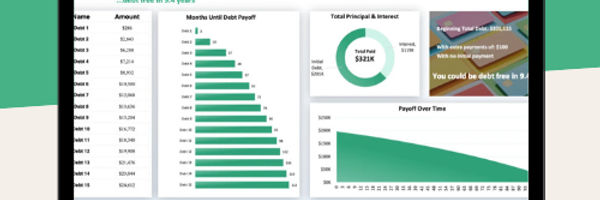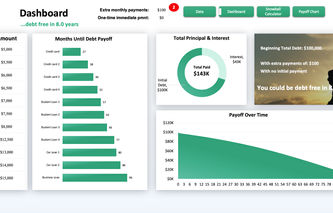Business should be about raking in the dough, not drowning in paperwork. Nobody has time for boring expense reports and snooping around your employees’ spending habits. The Ramp card claims to be the hero of streamlined expense management.
Does this card truly live up to its mighty promises?
Let’s find out—
This article will show you:
What Ramp is and if it’s the right card for your business.
All you need to know about its rewards and services.
How Ramp stacks up against other cards.
Read more:
Venture X Business Card
Ramp Credit Card at a Glance
Full name: Ramp Visa Corporate Card
Best for: Small businesses looking to manage expenses
Issuer: Sutton Bank and Celtic Bank
Required credit score: No credit check
What is The Ramp Card?
The Ramp card is a corporate charge card for small businesses to control expenses and cash flow.
With the Ramp card, you’ll have a clear view of all your business expenses in real-time, saving you time and money in the long run.
Unlike other corporate cards, there are no fees, no APR, no credit limit, and no credit check needed.
One of Ramp’s standout features is its ability to categorize expenses, making it easier for business owners to keep track of spending patterns.
And to keep things simple, Ramp also offers unlimited 1.5% cashback on all purchases with no complication categories or restrictions to trip you up.
But Ramp isn’t simply a business card—it’s more like a tool that offers a stress-free way for small businesses to manage their finances and take control of their expenses.
What is Ramp?
Ramp is a financial technology company founded in 2019.
The startup is one of the fastest-growing fintech companies, which recently shared that they saw their revenue quadruple last year.
And the company doesn’t show signs of slowing down—Crunchbase says Ramp has raised $1.4 billion from 44 investors and continues to grow in popularity.
How does the Ramp Card work?
The Ramp corporate card is made specifically for small businesses.
It’s all about helping you manage your expenses and cash flow like a boss:
Expense tracking
When you use the Ramp card for business purchases, it keeps track of everything for you—no more digging through piles of receipts or frantically jotting down expenses.
The card automatically categorizes your expenses so you can stay organized.
Real-time insights
With the Ramp card, you get instant access to real-time insights and analytics.
You’ll know exactly where your money is going and get smart suggestions on how to optimize your spending.
Smart controls
You can set spending limits for your employees or departments to stay in control of your budget (no surprises or overspending).
You also have the option to create virtual cards for online purchases, giving you an extra layer of security and control.
Integration
The Ramp card plays well with your existing accounting software and other financial tools.
This way you can easily sync up your spending data and keep all your financial details in one place.
Rewards
You earn a flat 1.5% cashback on all purchases, with no restrictions.
These rewards can help businesses save money and invest back into their business.
In a nutshell
The Ramp card simplifies expense tracking, gives you valuable insights, and puts you in the driver’s seat of your business spending.
Read more:
Ramp Card: Quick Summary Review
Here’s a quick overview of the Ramp business card:
APR | 0% |
Annual fee | $0 |
Intro offer | None |
Standard rewards | 1.5% cashback on every purchase (with no limits or categories) |
Overall rating | 4.4/5 |
Ramp Card Fees
Ramp prides itself on having zero fees.
That means no annual fees, interest charges, or foreign transaction bills to ruin your vacation.
Still skeptical?
Here’s a breakdown:
FEE | DETAIL |
|---|---|
Annual fee | $0 |
Processing fee | $0 |
Monthly maintenance fee | $0 |
APR | 0% |
APR for cash advances | N/A |
Balance transfer fee | N/A |
Cash advance fee | N/A |
Foreign transaction fee | $0 |
Late fee | $0 |
Minimum interest charge fee | $0 |
Returned payment fee | $0 |
Over limit fee | N/A |
Additional card fee | N/A |
So how does Ramp make money?
When you use your Ramp card to make purchases, the merchant pays an “interchange” fee. This payment is divided between Visa (the card network for Ramp) and the merchant’s bank.
Then Ramp gets a portion of that interchange fee.
Ramp Card: Pros & Cons
Time to check out the top Ramp benefits and potential deal breakers:
Pros
- No hidden fees.
- Automated receipt capture.
- Employee virtual cards.
- Flexible requirements.
- Simple rewards program.
Cons
- Not open to sole proprietors.
- No option to carry a balance.
- No sign-up bonus.
Pros: What we like
No hidden fees
The Ramp card is a charge card and not a credit card.
That means no annoying annual fees, foreign transaction fees, or late fees to worry about.
The company makes it crystal-clear that there are no hidden fees, so you can budget your business expenses without any surprises.
Automated receipt capture
Forget about the headache of manual receipt entry.
The Ramp card comes with an automated receipt capture feature that’s a serious game-changer.
Ramp’s automated receipts mean no more time-consuming data entry or complicated expense reports for business owners.
Employee virtual cards
The Ramp card offers unlimited virtual employee cards, making it easy for businesses to dish out cards to their employees with customizable limits and rules.
This feature is particularly useful for businesses with remote employees or those with multiple team members that need to make purchases.
Flexible requirements
Unlike other corporate cards, the Ramp card doesn’t require a personal guarantee (credit check).
This makes it a great choice for small businesses that may not have established credit or those that want to avoid putting their personal credit on the line.
Simple rewards program
The Ramp card offers a simple rewards program that provides 1.5% cashback on all purchases.
Sure, there are no bonus categories or higher rewards potential—but it saves you from having to calculate how and where you’re going to earn different points or cashback rates.
Check out the top cashback rewards cards.
Cons: Things to consider
Not open to sole proprietors
Ramp is exclusively available to registered businesses like LLCs, partnerships, and corporations.
So if you’re a sole proprietor or an unregistered business, the Ramp card is off the table.
No option to carry a balance
As Ramp is a charge card, you can’t carry a balance on it like you would with a credit card—which means you have to pay off the whole balance every month.
It’s not ideal for businesses that need some wiggle room in their cash flow, but at least there’s a silver lining—no interest charges on balances.

Lay out your credit card debt with the minimum payments and interest to see how long it will take to pay off!
What you will get:
Interactive dashboard
Customizable to your needs
Stay on track with charts and graphs
Suitable for up to 16 or 32 debts!

No sign-up bonus
Another downside of the Ramp card is that it doesn’t offer a sign-up bonus for new cardholders.
While this might not be a deal-breaker for everyone, it can be a drawback for businesses that want an added incentive to apply for a new corporate card.
Ramp Card: Things to Know
How do the Ramp rewards work?
Ramp doesn’t have any complicated categories to wrap your head around.
You earn a flat, unlimited 1.5% cashback on all your purchases.
And all the rewards are automatic, so you don’t need to activate anything or sign up for some fancy program. The cashback will just appear in your business’s account every month.
When it’s time to cash in those rewards, you can do it right from your company Ramp dashboard.
Admins and bookkeepers also have the power to view your earned cashback and see how much you’ve redeemed.
The Ramp card’s rewards program is straightforward, and can seriously save your business some dough.
But it doesn’t stop there.
Ramp also has access to over $350,000 in partner rewards with a range of deals and discounts.
Here are some partner perks you can redeem:
Gusto: 33% off Ardius R&D Tax Credit fees.
1Password: 25% off your first year.
Amazon Web Services: Up to $5,000 in credits.
Rippling: 10% off all Rippling products.
Notion: $1,000 in credit for Notion Team Plan.
Zendesk: 6 months free of Zendesk Suite and Sales CRM.
TravelPerk: 1 free month.
We spoke with an expert to find out what rewards you should be paying close attention to:
When choosing a card, assess the benefits offered, such as cashback, travel rewards, or category-specific bonuses that align with your spending. Opt for rewards that are easy to earn and redeem without excessive restrictions.Sudhir Khatwani, Founder at The Money Mongers
If you’re keen on rewards for your personal spending, check out these top cashback cards:
What are the Ramp financial services?
It’s not just rewards up for grabs—Ramp also offers a range of financial services, tools, and features that go with their corporate card.
Here’s a summary of Ramp’s services to make your business run smoother:
FINANCIAL SERVICE | DESCRIPTION |
|---|---|
Expense management | The Ramp card offers a range of expense management tools. This includes real-time expense tracking, automated receipt capture, and expense categorization. |
Cash flow management | Businesses can easily manage their cash flow by setting custom limits and rules for each employee card. This feature lets businesses control spending and avoid reimbursements or expense reports. |
Spend alerts | Ramp’s spend alerts feature notifies businesses in real-time when an employee has made a purchase that goes over their custom limit. |
Integrations | Ramp offers integrations with popular accounting software like QuickBooks and Xero. This lets businesses seamlessly import their expenses and manage their finances all in one place. |
Automated receipt capture | This feature removes the need for manual entry and simplifies the expense of the management process. Employees can snap a picture of their receipts, and Ramp will automatically categorize and log the expense in real-time. |
Ramp card also offers a bunch of handy free tools:
Mission statement generator
Burn rate calculator
Angel investors list download
Unit economics model
Pitch deck database
Headcount planning Ramp tool
Invoice generator
Monthly spend data
Check out these top personal finance tools for more budgeting and planning.
What are the Ramp credit card requirements?
With all those features and deals, Ramp isn’t just letting anyone in.
Here are the Ramp business card requirements to qualify:
Registered business: Your business must be registered as a corporation, LLC, or LP. You’ll also need to provide an employer identification number (EIN) when applying.
Financial stability: You’ll also need at least $75,000 in cash in any US business bank account linked to your application. Ramp can also look at your revenue, cash flow, and profitability to decide if you’re eligible.
US operations: Most of your operation and corporate spending should be inside the US. But don’t worry, they still support foreign transactions (free of charge).
Online banking: To use the Ramp card, businesses must be comfortable using online banking services. Ramp’s software is cloud-based, meaning all transactions and data are stored online.
Unlike many other cards, Ramp doesn’t do a credit check when you apply. They focus more on your business performance, cash flow, and revenue instead.
That being said, it’s always a good idea to aim for good credit—just to be on the safe side.
Read more:
How do the Ramp virtual cards work?
The Ramp card has unlimited virtual employee cards, which can be used for any online purchase.
They have many of the same features as a physical card, but you have the extra perk of connecting them to Apple or Google Pay for in-store purchases.
And if you like having a shiny metal card in your wallet, you’re still free to order a physical card.
Remember
Physical and virtual cards are separate, so you can’t order a physical version of a virtual one.
Like the physical version, you can customize each virtual card with specific limits and rules—which means you have complete control over how much your employees can spend.
There’s also the real-time tracking feature, which lets you monitor employee spending through the Ramp dashboard.
Creating virtual cards is a breeze—they can be instantly generated, so you can hand them out to your team on the spot.
There’s no waiting around for physical cards to arrive in the mail, so your employees can start using the virtual cards right away.
Learn more about how to get a business credit card.
Does Ramp report to credit bureaus?
Yes, Ramp reports business credit activity to the three major business credit bureaus: Dun & Bradstreet, Experian Business, and Equifax Small Business.
So when you use the Ramp card wisely, make payments on time, and avoid debt, you can build up your credit.
By laying down the foundation for a stronger business credit profile, it’ll be easier to secure financing or apply for loans (lenders love to peek at your credit score to see if you’re the real deal).
Read more:
How can I contact Ramp support?
For those who like talking on the phone, you’re out of luck: Ramp’s phone number is nowhere to be found on their website—but there are other ways you can reach out.
If you’re interested in applying, you can contact Ramp at hi@ramp.com.
And if you’re an existing customer, just head over to the Ramp dashboard, click the “?” icon, and select “Contact” to send an email to the support team.
It’s also worth checking out Ramp’s website—it’s a treasure trove of knowledge, packed with answers to all your burning questions.
There’s also a Support Bot that will pop up on the site, which you can use to ask simple questions with immediate responses.
How Does the Ramp Card Compare?
Ramp isn’t the only card offering tempting rewards and business benefits.
Here’s a side-by-side comparison with other popular business cards—Ramp vs. Amex Gold Business vs. Capital One Spark Cash Plus:
RAMP CARD | |||
|---|---|---|---|
Annual fee | $0 | $295 | $150 (refunded every year you spend at least $150,000) |
Rewards | Earn unlimited 1.5% cashback on all purchases | 4x points on top two business categories 1x points back on other select purchases | Unlimited 5% cashback on hotels and rental cars 2% cashback on other eligible purchases |
Intro offer | No intro offer |
Ramp Card: Useful Links
Ramp card login.
Find out more about the Ramp card online.
Download the Ramp app.
Learn more about Ramp’s terms of service.
Is the Ramp Card Good For Me?
Here’s who would be best suited for the Ramp card:
Small businesses looking for unlimited virtual cards.
Those on the lookout for customizable spending limits.
Businesses that want real-time expense tracking.
If these features align with your business’s needs, then the Ramp card could be a great fit for you.
Ramp’s innovative card solutions can help you manage your expenses more efficiently and keep tabs on employee spending.
Remember
The Ramp card is a charge card, not a credit card. This can be great because it’s free of fees, but it may be less effective for building credit or earning higher-tier rewards.

.jpg)




